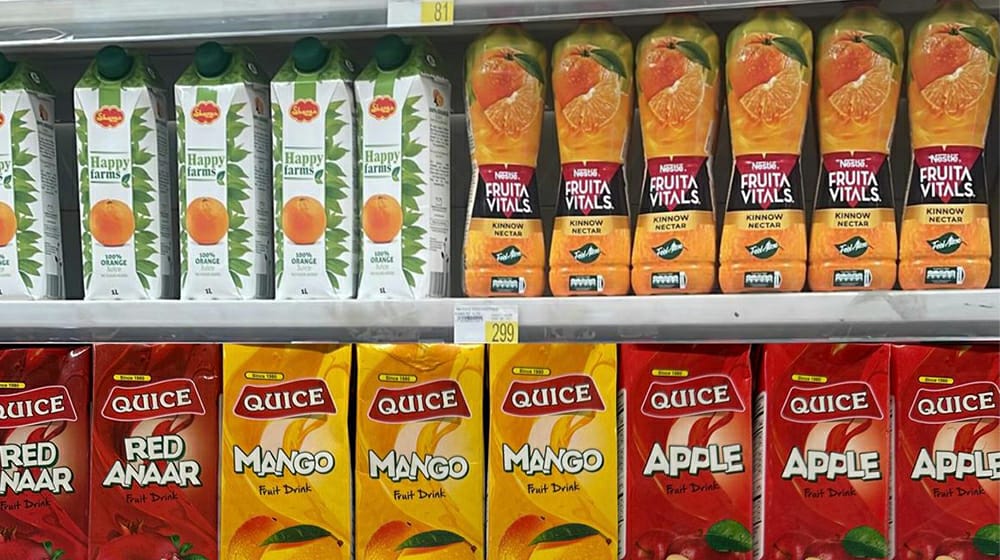Regressive taxation measures like the Federal Excise Duty are preventing the formal economy from growing.
At a time when the government is in a position to devise policy measures that can boost exports, it will be a litmus test to see whether it decides to tap into the export potential that packaged fruit juices industry holds in terms of exports.
According to reports shared by the Fruit Juice Council, the industry has projected export potential of USD 100 million. Currently, packaged juices are exported to more than 30 countries across the world, with current exports amounting to USD 100 Mio. However, it is critical that the domestic juice industry be on a growth trajectory in order to be able to increase exports.
The highest potential for exports exists in markets with a huge diaspora. Local growth is essential to developing the value chain further by bringing in investment for better technology, product trials as well as product development. If the industry fails to grow, exports will also end up suffering.
When the government and finance minister stress the importance of documenting the economy and modernizing value chains to increase tax revenue and improve the tax-to-GDP ratio, issues like smuggling and tax evasion continue to be problems.
This has led to a decrease in the formal sector’s presence, growth of the black market, and an increase in the circulation of lower-quality products, particularly in the food industry. These challenges are making it difficult for the government to collect taxes.
Several sectors are feeling the effects, including the formal juice, dairy, and other food sectors, as well as tobacco and petroleum products. The formal juice industry has also been affected by a 20 percent federal excise duty (FED) imposed last year. Sales have dropped by 40 percent, and illegal operators are gaining market share.
The combined impact of an 18 percent GST and 20 percent FED, totaling 42 percent, encourages the informal sector to offer lower prices and capture market share, especially when consumers are seeking cheaper options during economic downturns.
Previously, the juice industry saw strong growth when a 5 percent FED was removed, with sales reaching Rs 60 billion and providing employment for about 10,000 people. It also played a vital role in reducing losses in the fruit value chain. However, the reintroduction of a 20 percent FED has severely disrupted this progress, with half the amount of fruit processed into pulp compared to 2020.
While the government aims to increase revenue through taxes on the formal sector, the lack of enforcement is promoting informality. This leads to revenue losses and hampers the development of formal value chains, while smuggling and lower-quality products continue to rise. This situation creates a market where less nutritious food products dominate, and illegal and informal value chains flourish, providing opportunities for criminal activities.
It’s essential for the finance minister to reconsider this strategy by reducing tax burdens and strengthening enforcement measures.
The post 20% Federal Excise Duty Threatens Juice Industry Survival, Endangers Potential Export appeared first on ProPakistani.


